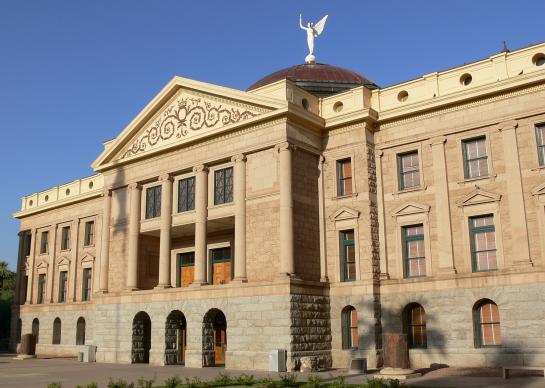AZ Budget Update 01-16-2023

Governor Katie Hobbs released her first budget proposal, outlining her priorities and opening what is sure to be a lengthy negotiation process with the legislature. The proposal spends a total of $17.1 billion, focusing heavily on investments in education. As promised in her State of the State last week, the Governor proposes to hold charter schools and ESA-funded private schools to the same reporting requirements as school districts and end the legislature’s expansion of Empowerment Scholarship Accounts (ESAs). Her plan would shift that funding toward other education-related spending, including:
- $198.6 million to base level funding (partly funded by elimination of the results-based funding model, as well as the ESA expansion repeal)
- $349.9 million for building renewal grants, and $172.7 million for new school construction
- $20.5 million for dual enrollment
- $10.9 million more for district additional assistance through an annual inflation factor similar to the base level funding model
- $5 million for matching funds, to help schools qualify for $60 million in federal funds for broadband infrastructure
- $2.4 million in transportation support for the Arizona School for the Deaf and Blind
The Governor predicts a 1.25% increase in school enrollment if the ESA expansion is repealed.
The Governor’s higher education funding proposals mirror what she outlined in the State of the State: A $40 million increase to the Arizona Promise Program, and another $40 million for a new Promise for Dreamers tuition assistance program. In addition, it directs $15 million to the Arizona Teachers Academy, restores funding to community colleges, and sets aside $46 million for the state universities’ New Economy Initiative.
The proposal includes new healthcare investments, as well, including an expansion of the KidsCare program to anyone who earns up to 300% of the federal poverty level (currently, those earning up to 200% of that amount are eligible). It dedicates $257 million toward AHCCCS to cover caseload growth and help minimize the impact of reduced federal Medicaid support that came from COVID-19 aid packages.
It grants authority for state agencies to use federal funds for Home and Community Based Services ($463.5 million for AHCCCS and $115.8 million for DES). The budget also provides $2.7 million to begin updating the case management and member eligibility systems at AHCCCS.
It proposes $14.6 million for additional caseworkers in Adult Protective Services and expands the Arizona Healthy Families Program by $2.5 million to serve an estimated 300 additional families. It provides $145.8 million for caseload growth and reduced federal funding for the Division of Developmental Disabilities. It designates $4.4 million to backfill lost federal funding for the Arizona Early Intervention Program and directs $6.1 million for a grant program that provides family planning services to low-income individuals.
The budget includes a new state-level child tax credit for low-income Arizonans and eliminates taxes on diapers and feminine hygiene products.
In addition, the proposal provides funding for:
- Buildings & Broadband
The proposal directs $205 million toward capital projects in state agency buildings and allocates $16 million to enhance broadband infrastructure in state facilities. It provides $50 million for a Rural Broadband Accelerated Match Fund, designed to help local governments obtain matching dollars for broadband infrastructure in unserved and underserved areas.
- Housing
The budget allocates $150 million to the Housing Trust Fund, which provides utility and emergency rental assistance, legal aid for families facing eviction, a home repair grant program for seniors, and other housing-related assistance.
- Savings
The budget deposits another $250 million in the Budget Stabilization Fund – the state’s savings account.
- State Employees
In addition to targeted increases at some state agencies, the budget directs more than $254 million for additional pay increases to retain state employees – including high-turnover nursing positions at AHCCCS and other health-related agencies.
- Transportation
The budget identifies funding for specific transportation and infrastructure projects.
Legislative Democrats praised the Governor’s proposed budget as “a strong start” to budget talks, but Republican legislative leaders rejected its key components – especially the repeal of the ESA expansion. They announced they will seek to simply pass a continuation of last year’s budget without new spending initiatives.
The public discussion on the Governor’s budget will begin in a joint hearing of the House and Senate Appropriations Committees on Tuesday morning.